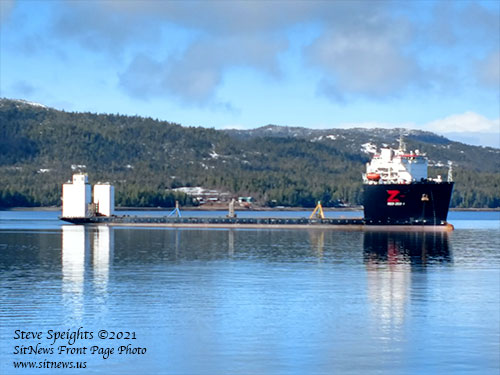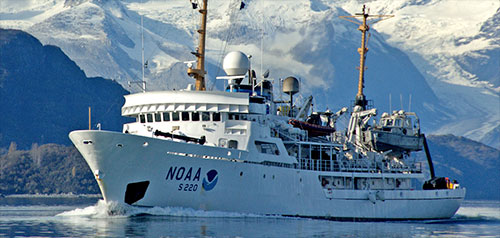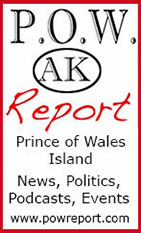










 Contact Contact 
 Webmail
Letters Webmail
Letters
 News Tips News Tips
 Copyright Info Copyright Info
 Archives Archives
Quick News
Search
 Alaska Alaska
 Ketchikan Ketchikan
 SE Alaska SE Alaska
Columns
- Articles
 Dave Kiffer Dave Kiffer
 Money Matters Money Matters
Historical
Ketchikan
 June Allen June Allen
 Dave
Kiffer Dave
Kiffer
 Louise
B. Harrington Louise
B. Harrington
Sports
 Ketchikan Links Ketchikan Links
Public Records
 FAA Accident Reports FAA Accident Reports
 NTSB
Accident Reports NTSB
Accident Reports
 Court Calendar Court Calendar
 Recent Filings & Case Dispositions Recent Filings & Case Dispositions
 Court Records Search Court Records Search
 Sex Offender Reg. Sex Offender Reg.
 Public Notices Public Notices
 Alaska Recall Alerts Alaska Recall Alerts
 Recalls.gov Recalls.gov
 AST Daily Dispatch AST Daily Dispatch
 KTN
Police Reports KTN
Police Reports
 Juneau Police Reports Juneau Police Reports
Weather,
Webcams
 Today's
Forecast Today's
Forecast
 KTN
Weather Data KTN
Weather Data
 AK
Weather Map AK
Weather Map
 AK Weathercams AK Weathercams
 AK Earthquakes AK Earthquakes

|
|

Tuesday
April 13, 2021

Heavy Lift Vessel RED ZED I
RED ZED I (IMO: 9633977) is a Heavy Lift Vessel that was built in 2015 and is sailing under the flag of Liberia. Her length overall is 216.74 meters and her width is 43 meters. The vessel arrived at port Ketchikan on April 2nd after a voyage originating from port VANCOUVER, Canada. The principle behind such ships is that floating cargo and goods can be loaded onto the submerged deck by floating them directly over the resting area. Once they are correctly positioned, the ballast water is pumped out until the deck of the vessel rises above the water
SitNews Front Page Photo by STEVE SPEIGHTS ©2021
To have your photo(s) featured on the front page,
email your photo(s) to editor@sitnews.us
|
|
Alaska: CRUISE Act to Resume Cruise Line Operations Introduced - U.S. Senators Dan Sullivan (R-Alaska), Rick Scott (R-Florida), and Marco Rubio (R-Florida.) today introduced the Careful Resumption Under Improved Safety Enhancements (CRUISE) Act,which would revoke the Centers for Disease Control and Prevention’s (CDC) current “Conditional Sailing Order” on cruises and require the CDC to provide COVID-19 mitigation guidance for cruise lines to resume safe operations. Representatives Don Young (R-Alaska) and María Elvira Salazar (R-Florida.) will soon be introducing companion legislation in the House of Representatives.
“Unlike the airlines, rail, and other modes of transportation—and all other sectors of the hospitality industry for that matter—the cruise lines have been denied clear direction from the CDC on how to resume operations. As a result, potential cruises this summer, when the President said the country will be able to return to normal with more and more Americans getting vaccinated, have been left adrift,” Sen. Sullivan said.
Sullivan said, “The foot-dragging, mixed messages, and unresponsiveness of CDC leaders is totally unacceptable and ultimately endangering the livelihoods of hundreds of thousands of Americans and the hundreds of small businesses across Alaska that rely on the tourism sector. My legislation with Senators Scott and Rubio will accomplish what letters, meetings, and repeated phone calls have not - directing the CDC to finally codify timely guidance and a plan for cruise ships to safely and responsibly welcome passengers again this summer.”
“Florida is a tourism state with thousands of jobs relying on the success of our ports, cruise lines and maritime industries,” Sen. Scott said. “While many sectors of the economy have been safely operating for months under CDC guidelines, Floridians, and those across the nation that rely on the cruise industry for work, continue to wait for updated guidance from the CDC. The CDC's refusal to properly address this shutdown is wrong and it’s time to get the cruise lines open safely. Our bill, the CRUISE Act, says we’re not waiting on the CDC any longer. Cruises can and should resume, andwe’re going to do everything we can to bring back our cruise industry safely.”
“The benefits of cruise operations are integral to the economies of Florida’s port cities,” Sen. Rubio said. “Floridians and many other Americans who are employed by ports, cruise operators, or work in hospitality jobs near cruise terminals face an uncertain future because of the CDC’s unresponsiveness to requests for guidance by stakeholder groups. I am proud to join Senators Sullivan and Scott in introducing legislation that would require the CDC to provide guidance to safely resume operations this summer, and allow Florida’s economy to recover even further.”
“Alaska's tourism economy depends on the summer cruise season," Congressman Young said. “The COVID-19 pandemic has devastated the tourism sector and caused undue stress on the Alaskan small businesses that rely on being able to welcome visitors from around the world."
Young said, " Even before we had effective vaccines, the CDC continued allowing airlines, trains, and other hospitality providers to operate unencumbered. On the other hand, cruise lines have been unjustly singled out by CDC shutting down an entire industry with huge economic ripple effects. As the country begins to turn the corner on the pandemic, this industry has been denied the attention and direction from federal regulators enjoyed by other transportation sectors. With the 2021 cruise season hanging in the balance, significant progress towards the resumption of cruising is urgently needed. Every day that passes without the lifting of CDC’s Conditional Sailing Order is one day closer to the loss of the 2021 Alaska cruise season. No federal agency should have the ability to deprive Alaskans and their businesses the opportunity to earn a living for over 31 months." - More...
Tuesday PM - April 13, 2021
Alaska: Report to Whitehouse: Alaska Economy Devastated by CDC Decision on Cruise Ships - Alaska Governor Mike Dunleavy last week sent the State of Alaska’s Impacts to Alaska from 2020/2021 Cruise Ship Season Cancellation report to the White House, detailing the economic impacts and attributing a $3 billion gross state product loss each year the cruise season does not take place. Alaska’s port communities have been severely impacted by the loss of cruise ships in 2020 and 2021 as a result of the pandemic. The recent extension of the conditional sail order through November 2021 by the Centers for Disease Control (CDC) ensures no cruise ships will bring passengers to Alaskan communities for the 2021 season.
The report, composed by the Department of Revenue, the Department of Commerce, Community, and Economic Development, and the Department of Labor and Workforce Development, outlines the material impact of the CDC action, in conjunction with the Canadian decision to not allow cruise ships to port, on the State of Alaska, local communities, and businesses. Prior to the COVID-19 pandemic, the Cruise Line Industry Association (CLIA) reported 40 cruise ships visited the region, carrying 1.36 million passengers on 577 voyages in 2019.
“Alaskans who depend on the summer tourism season to make a living waited anxiously, with hopes, that the COVID-19 vaccines would allow the return to normal, and for cruise ships to enter our ports again. The CDC’s recent decision to extend the 2020 “conditional sail order” effectively eliminates any potential for a 2021 cruise ship sailing season, and places the future of thousands of Alaskan families’ businesses in peril,” wrote Alaska Governor Dunleavy in a letter to Jeff Zients, counselor to the President. “The negative impact of this decision to our economy and people of Alaska, specifically Southeast Alaska, is staggering. It is estimated that the cancelled cruise ship season in 2020, in addition to the potential cancellation of the 2021 season, will result in a loss to the State of Alaska’s domestic product of over $3.3 billion.”
“The severe economic losses that are impacting our port and cruise communities has a multiplier impact that trickles throughout our entire economy; resulting in lost revenues, taxes, jobs and small business closures,” said Department of Revenue Commissioner Lucinda Mahoney. “The cruise industry is crucial to the state’s financial well-being.”
Alaska has experienced significant job losses because of the pandemic and will continue to experience losses because of the CDC ruling on cruise travel. Port and Cruise line related Communities have seen a collective 22,297 in job losses as compared to the previous year representing over $305.7 million in wages lost. - More...
Tuesday PM - April 13, 2021 |
|
Fish Factor: Search underway for 300 apprentice workers By LAINE WELCH - Alaska fishermen displaced by the Covid pandemic are being recruited for seafaring jobs aboard U.S. cargo barges, tankers, towboats, military support vessels, research and cruise ships and more.
The Seafarers International Union (SIU) is searching nationally for 300 apprentice workers on the vessels they are contracted to crew. Recruiters tout Alaskans as being at the top of their list.
“The reason for that is people from Alaska come with a work ethic already. They've been working since they could stand up. And that's why they're so good,” said Bart Rogers, assistant vice president at the Harry Lundeberg School of Seamanship in Maryland that has trained mariners for the SIU for over 50 years.
“It’s very appealing to people who live in Alaska because they can sail in a safe environment, earn a very good wage, get benefits and medical coverage for them and their family, advanced training is guaranteed, then they can go back home and spend the money they make,” said Rich Berkowitz, vice president of Pacific Coast Operations at Seattle’s Transportation Institute who helps recruit and assess potential mariners, adding that it also includes options for veterans and Native hire.
Currently, the call is out to train workers for positions as Able Seafarer Deck, a qualification needed to sail internationally; chief cooks and stewards. The training programs vary from several months to a year, Rogers said, adding that there is no tuition to attend the school but does require some incidental costs.
Berkowitz pointed out another lure for Alaskans. After they’ve made it through the training and onto the ships, they can schedule trips that still let them go fishing.
“Let's say they're in hospitality trades, they can work a good portion of the cruise season and then spend three or four months working in a fishing season.” he said.
Ralph Mirsky, director of Ketchikan-based, nonprofit Sealink has recruited nearly 600 Alaskans to the maritime trades over 20 years.
“And the reason for that is real simple,” he said. “They make a lot of money in a short period of time, and they can still do what they want at home.”
Women comprise about 15% of the U.S. seagoing workforce, estimated at 14,000.
“There's at least two or three in every class,” Bart Rogers said. “And don't get me wrong, but the women are smarter and work harder than the men all day long.”
Berkowitz added that Alaska gets an economic lift from its residents working in maritime trades.
“All the time on planes in Seattle I see oil workers flying back and forth to Alaska from Montana or Texas to work two weeks on and off on the slope. What we're doing is the opposite,” he said. “We're flying Alaskans Outside where they make all their money and then they bring it back. They’re not spending anything while they're on the vessels. So this is a net contributor to the state's economy, rather than a drain on it.” - More...
Tuesday PM - April 13, 2021 |

The Fairweather is a hydrographic survey vessel that maps the ocean to support safe navigation and commerce. Officers, technicians, and scientists aboard the vessel collect data that NOAA cartographers use to create and update the nation’s nautical charts. The Fairweather was constructed at the Jacksonville Shipyards in Florida and christened in March 1967. The Fairweather was named after Alaska’s Mt. Fairweather. The vessel was commissioned by the U.S. Coast Guard and Geodetic Survey in October 1968 at the Pacific Marine Center in Seattle.
Photo courtesy NOAA |
| Ketchikan: Ketchikan NOAA Dock Project to Begin, Contract Awarded Posted & Edited By MARY KAUFFMAN - NOAA announced last week the award of a contract to Ahtna Infrastructure & Technologies, LLC for a project to revitalize its port facility in Ketchikan allowing for the hydrographic survey ship Fairweather to be able to permanently return to its Ketchikan homeport for the first time since 2008.
Under the terms of the $18,771,041 contract, the Alaska-based company will make major improvements, including the construction of a new office building, large floating pier, steel access trestle, and updated power and water utility systems for servicing visiting ships. The project will begin with the removal of the existing pier and related structures.
“This NOAA port revitalization project is a great example of building back better by investing in modern and sustainable infrastructure,” said U.S. Secretary of Commerce Gina M. Raimondo. “The improvements to NOAA’s Ketchikan facility will enable the agency to support safe navigation and commerce in Alaska and the region more effectively than ever.”
Upon completion of this project, NOAA will have a fully functioning homeport in Alaska capable of supporting Ketchikan-based NOAA Ship Fairweather and other visiting NOAA and government vessels. NOAA expects the project to be completed by December 2022.
“We look forward to serving Alaska and the nation from this greatly improved facility,” said Rear Adm. Nancy Hann, deputy director of the NOAA Commissioned Officer Corps and NOAA’s Office of Marine and Aviation Operations (OMAO). “This represents a major milestone in NOAA’s effort to recapitalize the agency’s fleet and supporting infrastructure.”
NOAA’s fleet of research and survey ships is operated, managed and maintained by OMAO, which is composed of civilians and officers with the NOAA Commissioned Officer Corps, one of the nation’s eight uniformed services.
Governor Mike Dunleavy thanked NOAA for their commitment to rebuild the Ketchikan port facilities needed to house the NOAA ship Fairweather. The almost $19 million project will allow the hydrographic survey ship to permanently return to its Ketchikan homeport for the first time since 2008.
“As geopolitical tensions in the Arctic escalate, monitoring and surveying America’s Arctic is of critical importance to our national security,” said Governor Dunleavy. “The move to permanently base the Fairweather in Alaska, as the late Ted Stevens advocated for years ago, is a long overdue step toward defending the national interest.”
The NOAA contract awarded to Ahtna Infrastructure & Technologies, LLC, is expected to be completed in December 2022. Funding for the project includes borough, state, and federal funds appropriated over several years since 2012.
“Alaska’s ports play a vital role in supporting our local economies. The State of Alaska welcomes the Fairweather and the federal maritime families who will relocate to Alaska to support it,” said Governor Dunleavy.
“I’m happy that our congressional delegation was able to make this happen,” Senator Bert Stedman, R-Sitka, said. “I want to especially thank Senator Dan Sullivan and his office for helping secure this project that will help rebuild the NOAA dock in Ketchikan so that the NOAA Ship Fairweather can be permanently based there. This project has been in the works for over 20 years. It might have fallen through the cracks if it were not for the diligent teamwork by Senator Sullivan and his office, NOAA, and my former chief of staff, Randy Ruaro, who currently serves as Governor Mike Dunleavy’s chief of staff.” - More...
Tuesday PM - April 13, 2021 |
|
Southeast Alaska: Alaska Granted Motion to Join Defense of Salmon Fisheries in Southeast - The State of Alaska’s motion to intervene in a federal case that would threaten Southeast Alaska’s salmon fisheries was granted by the U.S. District Court for the Western District of Washington last week. The Wild Fish Conservancy, a conservation organization based in Washington state, claims that Alaska’s management of fisheries under the Pacific Salmon Treaty threatens the survival of several salmon stocks in Washington and Oregon, and the endangered Southern Resident Killer Whales that depend on them.
“This is yet another example of radical outside interest groups attempting to put Alaskans out of work and shut down one of Alaska’s vital industries. The Alaska constitution ensures our fisheries are among the most sustainable and best managed in the world, providing opportunities for both current and future generations. We will not sit idly by as the livelihoods of our residents are under attack,” said Governor Mike Dunleavy.
The lawsuit seeks to shut down all salmon fisheries in the federal waters off the coast of Southeast Alaska. Federal waters run 3 to 200 miles offshore and comprise approximately 87 percent of the fishable area in Southeast Alaska. Authority to manage salmon fishing in the federal waters of Southeast Alaska was delegated to the State by the National Marine Fisheries Service consistent with the Magnuson Stevens Act. - More...
Tuesday PM - April 13, 2021
Alaska: Governor Announces Forthcoming Tourism Aid Initiative – Alaska Governor Mike Dunleavy announced Friday a forthcoming initiative to aid our impacted tourism, hospitality, and ancillary businesses in a press conference with local business owners at Wings Airways Hanger in Juneau. The governor’s proposal to provide resources to Alaska businesses in an effort to rescue this year’s tourism season includes an expansive national tourism campaign, major relief to tourism communities and businesses, and a readiness to file legal action against the Centers for Disease Control and Prevention (CDC) if the conditional sail order is not lifted.
“We can no longer wait for the federal government to act and support our communities and businesses that rely on tourism, namely those who come to Alaska by cruise ship. Alaska was anticipated to welcome 1.3 million tourists by cruise ship before the pandemic shut that down. The combined total economic loss from a canceled cruise ship season in 2020 and 2021 amounts to $6 billion, with 2,180 businesses at direct risk – many of which are small family owned businesses,” said Governor Dunleavy. “My administration is taking necessary steps to help Alaskans, starting with putting forth an aggressive aid package and seriously considering filing legal action against the CDC if the conditional sail order is not lifted. Our communities need our help now more than ever.” - More...
Tuesday PM - April 13, 2021
|
|
Ketchikan Historical: Homeporting the Fairweather, a decades long quest By DAVE KIFFER - A nearly two-decade quest to build a "homeport" dock for the NOAA research and survey vessel came to fruition last week, when the National Oceanic and Atmospheric Agency announced it had awarded an $18 million contract to Anchorage-based Ahtna Infrastructure and Technologies LLC.
Ahtna Infrastructure is a subsidiary of Ahtna Netiye’, Inc. which is a wholly owned subsidiary of the Ahtna Native Corportation, the Glennallen based Alaska Native Corp. Ahtna has done previous projects in Alaska for the FAA and the Coast Guard. It also worked for NOAA on a project in Alabama.
Back in the late 1990s, NOAA was at a crossroads, much of its coastal survey fleet was aging and several of the vessels, including the Fairweather had been taken out of service. But the replacements for those ships, as exemplified by the Oscar Dyson which was then under construction, were proving much more expensive and NOAA was looking at smaller budgets in the future.
NOAA decided to bring the Fairweather, which had been tied up for nearly a decade, back into service. But it was considered only a short term move until a new vessel could be built to replace it.
The Fairweather had been built in the early 1960s at the Aerojet General Shipyards in Jacksonville, Florida for the United States Coast and Geodetic Survey. She was completed in 1967 and went into service for the USCGS from 1968 to 1970. She-then was transferred to the newly formed National Oceanic and Atmospheric Association (NOAA) which absorbed the USCGS and the National Weather Service.
After a lengthy retrofit, the Fairweather was ready to come back online, based at NOAA facilities at Lake Union in Seattle. But it was then that Alaska's US Sentator Ted Stevens threw the agency a curveball.
Stevens was the ranking Republican on the Senate Appropriations Committee, making him one of the most powerful legislators in the federal government. He was known for steering projects to his home state and with the Fairweather he saw an opportunity to do just that.
In this case, Ketchikan would be the benefit of his largess. The First City had lost its primary economic engine when the Louisiana Pacific Pulp Mill had closed down several years before and Stevens had already steered millions of dollars of economic relief aid into the community. He decided to require that the Fairweather be homeported in Ketchikan as additional "economic relief." Stevens also wanted to make sure that Alaska stayed at the center of NOAA's operations as its budgets declined.
Besides building a new NOAA facility in Ketchikan for the Fairweather, Stevens and local leaders also hoped that the homeporting action would encourage crew members and their families to relocate to Ketchikan at a time when the town population had dropped because of the mill closure. - More...
Tuesday PM - April 13, 2021
|
|
Alaska: Big change on a big landscape By NED ROZELL - The Alsek, a world-class rafting river that flows into the Gulf of Alaska from its headwaters in Canada, may soon abandon the lower part of its drainage for a steeper one 15 miles away.
The Alsek River starts in the Yukon Territory, flows through British Columbia and then on to Dry Bay in Alaska. It is a rare northern river that cuts from the interior of the continent through rugged mountains to the coast.
The re-route of the Alsek River’s ocean connection will be due to the extreme melt of Grand Plateau Glacier, which acts like a cork that prevents the Alsek from following a faster path to the sea.
The river re-route, which could happen within a few decades, would affect more than the 800 or so rafters who paddle down from Canada each year, said Michael Loso, a geologist at Wrangell-St. Elias National Park and Preserve. Loso is the author of a recent paper about the Alsek’s future.
Dry Bay, Alaska, into which the Alsek now flows, is the base for a commercial salmon fishery, with an airstrip and fish-processing plant. Fishermen also have cabins there, and there are a few fishing and hunting lodges.
“That’s a whole world there devoted to the Alsek River,” Loso said.
That part of the Alsek may dry up if the retreat of Grand Plateau Glacier pirates the flow of the Alsek southward over a steep forested lip to the sea.
Dry Bay is part of Glacier Bay National Preserve, which allows commercial and subsistence fishing as well as guided rafting. The possible new river outlet is in Glacier Bay National Park, a wilderness area where federal law does not allow all uses.
“It’ll be difficult for these activities to follow the river,” Loso said.
Glaciers have always roughed up the Alsek River. The Kaskawulsh Glacier closed off the Alsek’s historic connection to Kluane Lake in 2016. Tweedsmuir Glacier has tongued into the Alsek — most recently in 2008 — discouraging red salmon from venturing farther upstream. The Lowell Glacier has several times dammed the Alsek, once resulting in an outburst flood that destroyed a Dry Bay Native village in about 1850.
“It’s a river that’s been pushed around by glaciers for a while,” said Chris Larsen, a glaciologist at UAF’s Geophysical Institute and a co-author on the paper. - More...
Tuesday PM - April 13, 2021
Alaska: Alaskans Voice Opposition to Dunleavy Administration's Proposed Changes to Water Reservations System - Tribes, fishermen and Alaskans have voiced extensive concerns over the Dunleavy Administration’s efforts to unduly restrict the rights of Alaskans in holding water reservations to protect our fisheries and water-dependent ways of life.
Alaska’s Department of Natural Resources proposed major changes to the state’s water reservations systems to favor resource development over the protection of fisheries, recreation or municipal uses. The proposed changes are an attempt to silence Alaskans’ voices in protecting the waters that provide the food, culture, recreation, and income we depend on. The changes would continue to allow and prioritize industrial interests to hold water rights and take water from Alaskan streams, but would not allow Alaska Native Tribes, community organizations, individuals or even the Alaska Department of Fish and Game to hold the reservations that ensure vital waterways remain intact for future generations.
Tribes, conservation and fishing organizations and others have voiced opposition to the proposed changes since they were initially published in January and submitted extensive questions about the proposal to the Department of Natural Resources. More than a thousand Alaskans also opposed the state’s proposal during the public comment period that ended April 2, 2021, which was twice extended due to the controversial nature of the proposal. A hearing on the proposed changes in the Alaska Legislature has been requested.
“Alaska Native Tribes, fishermen, businesses and individuals who depend on healthy fisheries deserve the right to protect those resources by ensuring that enough water is always left in our rivers, streams and lakes. With increasing pressure on our water resources, the state should instead develop an automatic instream flow reservation system that properly protects our vital resources in an equitable way,” said Sommers Cole, a Southeast Alaska Commercial Fisherman. - More...
Tuesday PM - April 13, 2021
|
FINANCIAL FOCUS: Will investors change behavior after the pandemic? Provided By BEN EDWARDS, AAMS® - The COVID-19 pandemic may end up changing our lives in some significant ways. To cite one example, it’s likely we’ll see a lot more people continue to work remotely, now that they’ve seen the effectiveness of tools such as videoconferencing. Education, too, may be forever changed in some ways. Perhaps just as important, though, is how many people may now think more about the future – including how they invest.
If you work with a financial professional, you may have connected with this individual over the past several months through a videoconferencing platform, rather than in person. Some people like this arrangement because it offers more scheduling flexibility and eliminates the time and effort of traveling to and from an appointment. Others, however, still prefer face-to-face contact and look forward to when such arrangements will again be practical and safe for everyone involved. But if you’re in the first group – that is, you prefer videoconferencing – you may now wish to use this communication method in the future, at least some of the time.
- More...
Tuesday PM - April 13, 2021
DAVE KIFFER: A Belated Thank You - We often seem to wait too long to let people know they have been important in our lives.
As a journalist I have written dozens of stories of people after they have passed on and the common theme is always how much others cared about them and the difference they made in those people's lives.
Yeah, I get the whole "never speak ill of the dead" approach, but it seems that, more often than not, there is a fair assessment of folks when people come to grips with the fact they are gone. Maybe we're just assessing the empty space they have left in us, but it is always good to know you have made a mark. Although, in these cases that revelation does come a little late, at least for the dearly departed.
I was thinking about that when I was chatting with one of my former high school teachers in the store the other day. I was taken with a sudden urge to tell her how important she was in the direction my life eventually took, but we were talking about vegetables and cruise ships and, well, it just seemed like too abrupt of a transition to make. Plus, we were both wearing masks and, well, it just didn't seem like the sort of conversation you have when you are wearing masks. - More...
Tuesday PM - April 13, 2021
|
ARPA fed funds By Rep. Dan Ortiz - The State of Alaska has received significant federal relief funding during COVID-19. We have received funds in three tranches - the CARES Act in March 2020, CRRSA Act in December 2020, and ARP Act in March 2021.
The most recent federal appropriation bill, American Rescue Plan (ARP) Act, provides an additional $1.45 billion to Alaska. $250 million of that amount will go straight to local governments and $370 million will go to school districts.
In general, the specified uses for federal relief funds have become more flexible over time; the CARES Act had a narrow requirement and short timeline for what the funds could cover, whereas the ARP Act generally has more flexibility in spending power. For example, the CARES Act funding was unable to backfill lost revenue, which was particularly harmful to port communities. Because of the lack of a tourism season, the City of Ketchikan was paying big infrastructure costs while simultaneously losing $33 million in revenue, primarily in the form of sales taxes from visitors. - More...
Monday PM - April 05, 2021
 |
Systemic Racism By Hannah Ramiskey - While reading the Wall Street Journal on March 5, 2021, I came across an article by Jeffrey H Anderson concerning President Biden’s response to a reporter who asked if he believed that there was ‘systemic racism in law enforcement’. President Biden replied, “Absolutely”. Later, President Biden stated that “his administration would make evidence- based decisions guided by the best available science and data.” Mr. Anderson takes issue with the President’s statements.
It seems that every year since the Nixon administration, the Federal Justice Department has examined whether people of different races were arrested to a degree that was disproportionate to their involvement in crime. The report released in January 2021 concluded that there was ‘no statistically significant difference by race between how likely people were to commit serious violent crimes and how likely they were to be arrested.’ The data suggested that police officers and sheriff’s deputies focus on criminals’ actions, not their race.
The WSJ article goes on to report that the NCVS is the nation’s largest crime survey. It is based on a survey of about 250,000 U.S residents who are asked if they have been a victim of violent crime in the last six months. The data is gathered from victims and is not based on police records. The victim’s responses were compared with arrests by police, supplied by the FBI’s Uniform Crime Supporting Program. “It found that for non-fatal violent crimes that victims reported to the police, whites accounted for 48% of offenders and 46% of arrestees. Blacks accounted for 35% of offenders and 33% of arrestees, Asians 2% of offenders and 1% of arrestees. None of the differences between the percentage of offenders and percentage of arrestees of a given race were statistically significant.” (Data on fatal crimes is not available as murder victims cannot identify their assailants). - More...
Monday PM - April 05, 2021
 |
Utilize the Police Department to protect and serve, not imprison and fine By Alexander Coker - The war on drugs has been a complete failure. It has somehow shifted to a war on the downtrodden. The Alaska Libertarian Party firmly believes laws should be limited in their application to violations of the rights of others through force or fraud, or to deliberate actions that place others involuntarily at significant risk of harm.
When addressing sexual relations between two consenting adults, the government does not have the responsibility nor authority to intervene. The same goes with lower level drug possession. Alaskans desire their autonomy and should be able to choose to do with their bodies as they wish, as long as they do not effect others. - More...
Monday PM - april 05, 2021
Where is the Wisdom? By Louise Clark - I simply have to ask once again, where is the wisdom? I see the boats going to Sitka for the sac roe fishery yet again.
My people lived here for hundreds, perhaps thousands of years and feasted every spring on the wonderful delicacy of the herring eggs. They never harmed the massive numbers that came every spring for not only the humans, but every creature from the sky, land and sea. They savored and enjoyed the bountiful masses of herring that once came.
Unless you lived here in the 1930s or 40's you have no conception of what a true biomass of herring looked like. I remember as a child watching in awe because it literally looked like you could walk across to Pennock Island on the backs of the massive amounts of herring swimming by for days to their spawning grounds. - More...
Monday PM - April 05, 2021
Selective Service registration deserves a full hearing in Congress By Edward Hasbrouck - A Supreme Court case challenging the requirement for men, but not women, to register with the Selective Service System for a possible military draft is forcing Congress to make a choice it has been avoiding for decades: End draft registration, or expand it to young women as well as young men.
The choice is not between continuing male-only draft registration (which is likely to be found unconstitutional) and expanding registration to women. The real choice is whether to expand registration to women or to end it entirely. Bills for each of those options were introduced in the last session of Congress, and are likely to be reintroduced within the next few months as part of the annual National Defense Authorization Act.
This is a choice about militarism, not a choice about gender equality. Expanding draft registration to women would bring about a semblance of equality in war (although women in the military would likely still be subject to disproportionate sexual harassment and abuse). Ending draft registration would bring about real equality in peace and freedom. - More...
Monday PM - April 05, 2021
 |
SAVE THE KETCHIKAN BUREAUCRATS, KILL THE TOWN By David G Hanger - Let’s start with a dose of historical reality. A year ago your then “Dear Leader” assured everyone this pandemic was no big deal and would all be over in a few weeks, despite the historical reality that the Spanish Flu (apparently in fact the Fort Reilly, Kansas, Flu)lasted two-and-a-half years and more before it cleared out. By late spring, early summer 2020, at the latest, it should have been obvious to anyone that not only 2020 but also 2021 were completely wiped out. The real question is 2022 and beyond, about which there remains considerable uncertainty. - More...
Monday PM - March 29, 2021
Email letters, opinions, OPEDs to editor@sitnews.us
|
Articles &
photographs that appear in SitNews may be protected by copyright
and may not be reprinted or redistributed without written permission
from and payment of required fees to the proper sources.
E-mail your news &
photos to editor@sitnews.us
Photographers choosing to submit photographs for publication to SitNews are in doing so, granting their permission for publication and for archiving. SitNews does not sell photographs. All requests for purchasing a photograph will be emailed to the photographer.
|
|












The Local Paper is
available online.
Click here for this week's printed edition (PDF)



|
|
![]() Contact
Contact ![]()
![]() Webmail
Letters
Webmail
Letters![]()
![]() News Tips
News Tips![]()
![]() Copyright Info
Copyright Info![]() Archives
Archives![]() Alaska
Alaska![]() Ketchikan
Ketchikan![]() SE Alaska
SE Alaska![]() Dave Kiffer
Dave Kiffer![]() Money Matters
Money Matters ![]() June Allen
June Allen![]() Dave
Kiffer
Dave
Kiffer![]() Louise
B. Harrington
Louise
B. Harrington ![]() Ketchikan Links
Ketchikan Links![]() FAA Accident Reports
FAA Accident Reports ![]() NTSB
Accident Reports
NTSB
Accident Reports![]() Court Calendar
Court Calendar![]() Recent Filings & Case Dispositions
Recent Filings & Case Dispositions ![]() Court Records Search
Court Records Search![]() Sex Offender Reg.
Sex Offender Reg.![]() Public Notices
Public Notices![]() Alaska Recall Alerts
Alaska Recall Alerts![]() Recalls.gov
Recalls.gov![]() AST Daily Dispatch
AST Daily Dispatch![]() KTN
Police Reports
KTN
Police Reports![]() Juneau Police Reports
Juneau Police Reports ![]() Today's
Forecast
Today's
Forecast![]() KTN
Weather Data
KTN
Weather Data![]() AK
Weather Map
AK
Weather Map![]() AK Weathercams
AK Weathercams![]() AK Earthquakes
AK Earthquakes





































